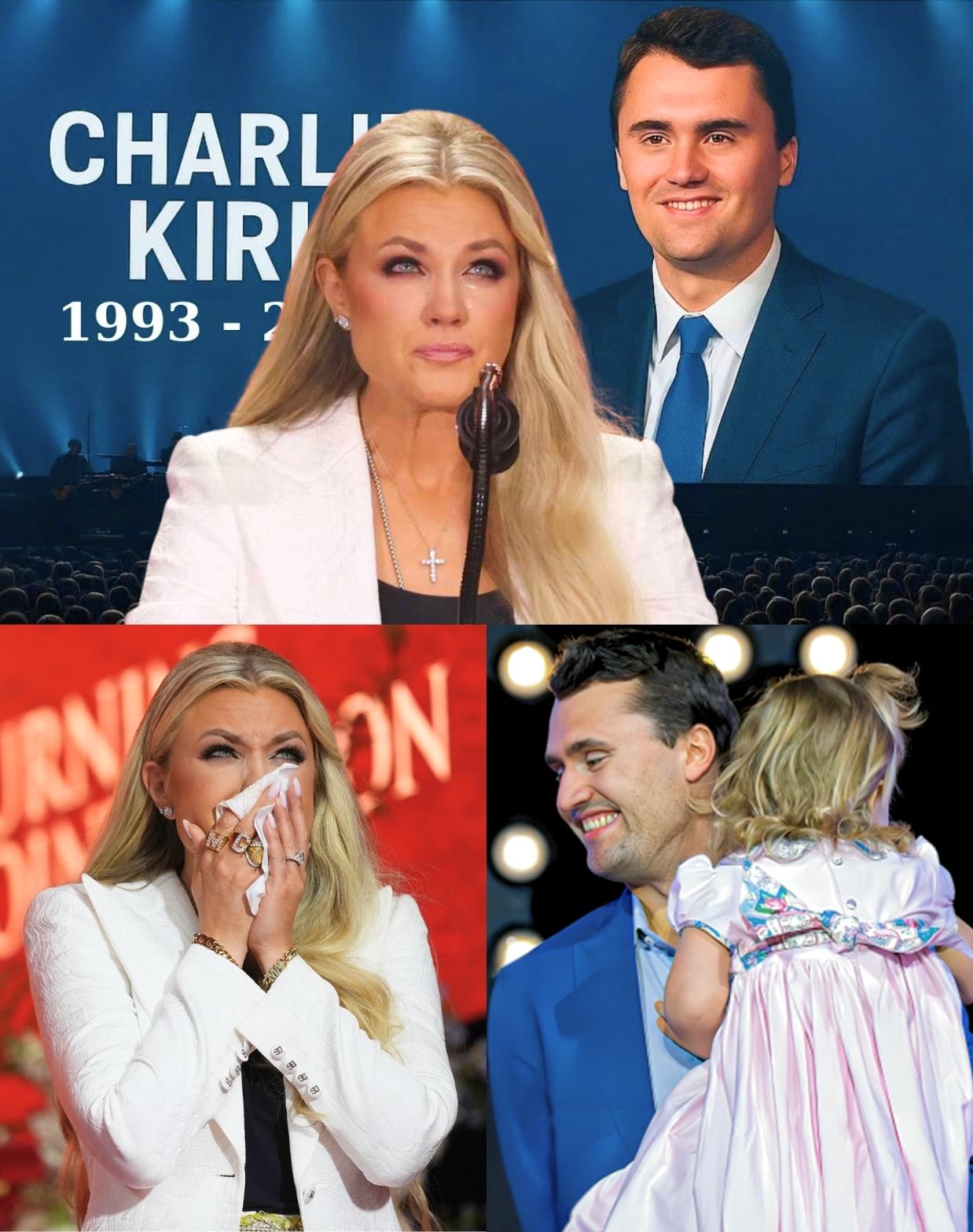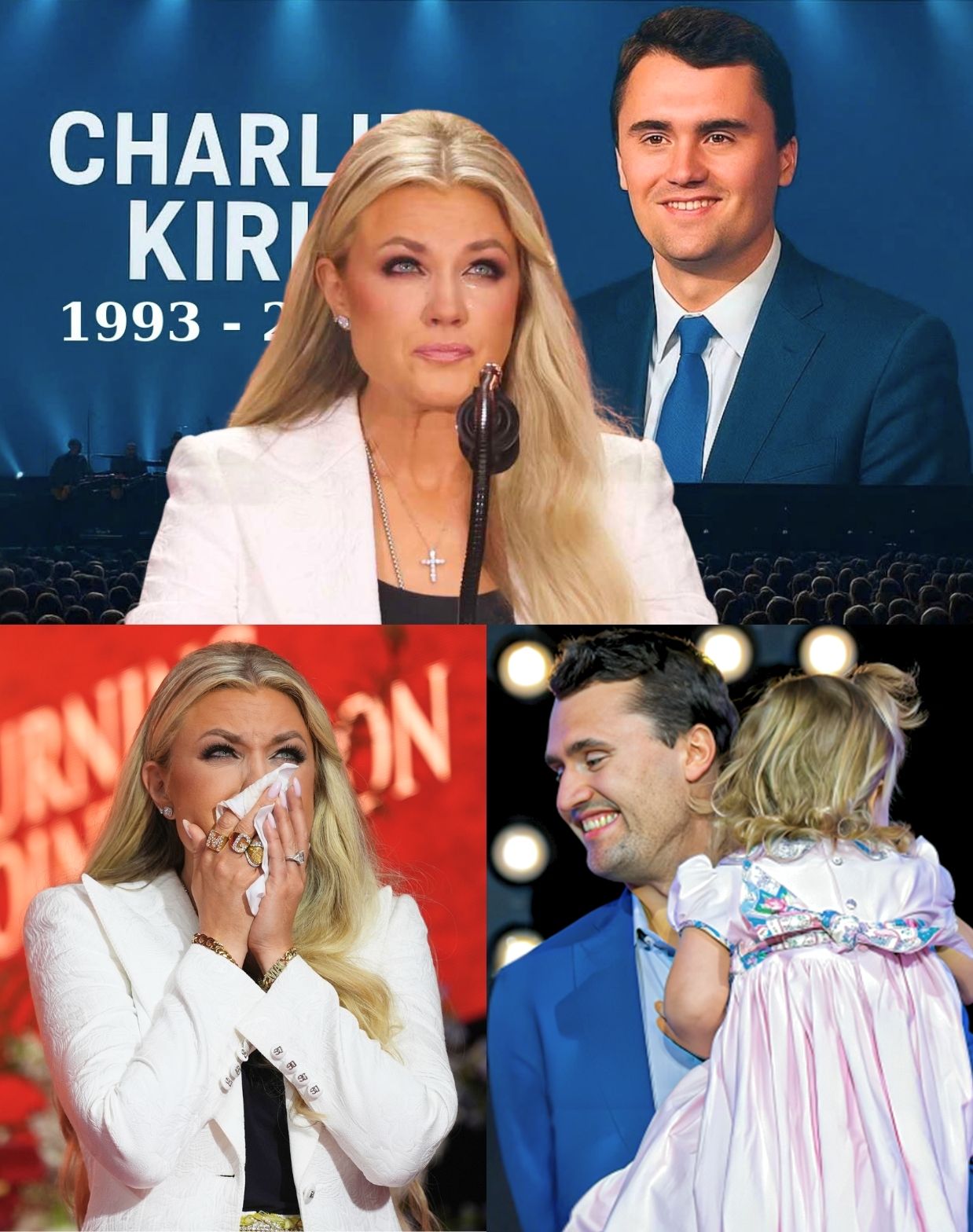
The vast arena in Glendale, Arizona, was steeped in an atmosphere of grief and solemn reflection. Thousands had assembled, their hearts heavy with loss, their eyes fixed on the stage. Above the podium, a giant portrait of the recently departed Charlie Kirk served as a somber backdrop. It was here, at a memorial service, that his widow, Erika Kirk, would deliver a message that transcended mourning, transforming the evening into a powerful demonstration of faith and forgiveness that left a nation stunned.
With a composure that belied the profound pain she must have felt, Erika Kirk addressed the immense crowd. Her voice, though tinged with emotion, remained steady as she spoke of her husband’s unwavering faith and his dedication to speaking truth, often without a script. She shared his favorite verse, Isaiah 6:8: “Here I am, Lord; send me.” Erika recounted how Charlie had prayed to be used by God, a prayer answered, she explained, in the most agonizing way just eleven days prior.
In a moment that silenced the thousands in attendance, Erika turned her gaze towards the man accused of taking her husband’s life. Her words, delivered with a calm resolve, resonated with a profound spiritual conviction. “That young man…” she began, her voice momentarily catching the weight of her next statement. “I forgive him. I forgive him because it was what Christ did, and it is what Charlie would do. The answer to hate is not hate. The answer is love. Always love.”
The arena, moments before a sanctuary of shared sorrow, erupted in a wave of hushed gasps, quickly followed by reverent applause. The audience seemed caught between the raw grief of their loss and the awe-inspiring courage displayed by Erika. Forgiveness of this magnitude, in the face of such unspeakable tragedy, appeared not merely human but divinely inspired. In that pivotal moment, Erika Kirk became a living embodiment of the Gospel message her husband had so passionately championed.
While her declaration of forgiveness offered a powerful testament to her faith, it did not diminish the depth of her personal sorrow. Erika painted a vivid picture of the devastating moment she entered a Utah hospital, only to face the lifeless body of her beloved husband. She spoke of the initial shock, the horror, and the overwhelming pain. Yet, even in that darkest hour, she found solace, recalling a faint smile on Charlie’s lips, which she interpreted as a “mercy from God.” This, she shared, reassured her that Charlie had not endured suffering; his passing was instantaneous, and his first sight beyond this life was of his Savior.
Shifting from the depths of her personal grief, Erika’s address evolved into a powerful call to action. She reminded the assembled mourners that Charlie’s death, rather than inciting chaos, had spurred an unexpected spiritual awakening. Across the country, she noted, individuals were returning to their Bibles, engaging in prayer, and entering churches after years of absence. “This was Charlie’s greatest hope,” she stated, “That lives would be turned back to God.” She extended a welcome to these new believers and urged those already within the faith to “shepherd these souls” with diligent care, nurturing the seeds of faith and protecting them from the world’s temptations.
With unwavering conviction, Erika then announced her intention to assume her husband’s leadership role as the new CEO of Turning Point USA. Her vow was met with an outpouring of thunderous applause. “What Charlie built, we will grow tenfold,” she promised, her voice ringing with determination. “No assassin will silence this mission. His passion is now my mission.”
Ultimately, however, it was her radical act of forgiveness that served as the emotional core of the memorial service. In a society often driven by the pursuit of vengeance, Erika offered a profound and contrasting alternative: grace. Through this grace, she honored both her faith and the memory of her husband.
As the solemn ceremony neared its conclusion, Erika looked heavenward, her voice a mere whisper as she spoke her final words for the evening: “I love you, Charlie. And I will make you proud.” The crowd rose in silent reverence, many openly weeping, having witnessed not only the commemoration of a life lived with purpose but the extraordinary power of a woman’s faith—a faith that transformed profound tragedy into an inspiring testimony, and deep sorrow into a promise of enduring hope.
